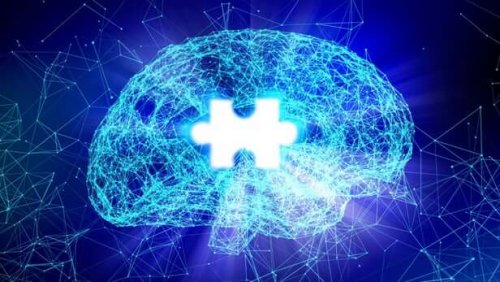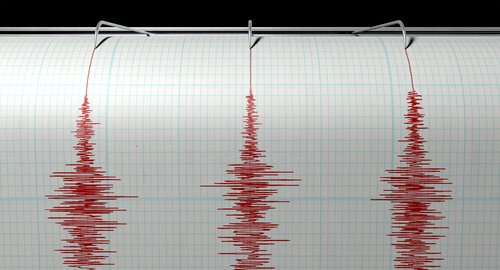(Explore your Mind) Psychophysiology studies human behavior and the processes involved in it. To do that, this branch of psychology applies some techniques to capture the body’s physiological responses. Psychophysiology is the branch of psychology that studies the physiological foundation of the brain’s psychological processes. It analyzes behavior and the processes behind it.
Related Revisioning Cellular Bioenergetics: Food As Information and The Light-Driven Body
by Staff Writer, February 15th
Since its beginnings in the 19th century, it has always studied the same thing. However, technology and the influence of so many different approaches have shaped the way of targeting the brain’s study and its relationship with behavior.
Nowadays, in order to study the brain, experts use many different scientific techniques. Thus, we can find a link between psychophysiology, neuropsychology, psychoendocrinology, psychoneuroimmunology, or the psychobiology of neuroscience.
Buy Book The Mass Psychology of Fascism by Wilhelm Reich [Discoverer of Orgone Energy]
Psychophysiology journals
Some of the journals that publish about it are:
- Psychophysiology, since 1964
- International Journal of Psychophysiology, since 1983
- Journal of Psychophysiology, since 1987
- Cognitive Neuroscience, since 2010
- Applied Psychophysiology and Biofeedback, since 1997
An overview of psychophysiology
Like we mentioned earlier, the main goal of psychophysiology is to study human beings and the processes behind their behavior. To do that, this branch uses some techniques that capture physiological signals, which then translate into electrical signals that experts analyze.
Thus, to obtain the psychophysiological signals, experts capture the electrical ones first. They do it directly, through electrical or bioelectrical methods, or indirectly through bioelectrical methods. Instruments such as the thermistor or the photoplethysmograph are incredibly useful and accurate for this task. Once the sensors capture and transmit the physiological response, it can be either transformed, amplified, filtered, or calibrated.
Finally, in order to get the signal, it’s necessary to keep a recording of it on graph paper, moved at a constant speed with oscillographs and ink pens. Once the amplifying phase ends, the signals can also be registered on a computer, which is a more dynamic method and makes it easier to manipulate the signal.

In order to explain the psychophysiological response, experts must carry out both an analysis and an interpretation. Thus, they observe the following parameters:
- Amplitude
- Frequency (Hz)
- Waveform
- Latency (ms.)
- Scientific method or cycle
- Interval

Basic types of recordings
The signals can be registered in a unipolar or bipolar way:
- Unipolar (endosomatic): One electrode is placed in an active part of the skin and another one in an inactive area. For example, an EEG is a type of unipolar recording.
- Bipolar (exosomatic): It’s recorded by two electrodes placed in two electrically active points. For example, an ECG works in this way.
Types of psychophysiological responses
- Tonic: It refers to the basal level (or rest level) in the activity of a psychophysiological signal.
- Phasic: It’s the response or degree of activity after a specific stimulation. These responses are temporary changes in the tonic response.
- Spontaneous or non-specific: They appear in the absence of a known stimulation and they indicate the degree of emotional lability and arousal.
Buy Book Memories, Dreams, Reflections by Carl Jung
The analysis of the psychophysiological response
In order to analyze the psychophysiological response, two things must be considered:
- Arousal: It’s the energy release in the object of study. It relates the physiological changes to the behavioral ones.
- Habituation: It’s the decrease in the responses’ amplitude as a consequence of repeated arousal.

Aside from what we mentioned so far, it’s important to also keep in mind the context of the recording. For example, if the recording is carried out in the lab, some variables like temperature, humidity, and light must be under control.
This way, the subject does the experimental task in several different phases. First, before the task, it’s important to know the characteristics and physiological responses of the subject. Then, there’s the adaptation phase, followed by a basal recording, a stimulus recording, and a post-stimulus recording.
Lastly, it’s worth noting that psychophysiology is like a tree branch, where many different fields of science come together. Consequently, a good part of it takes knowledge from other sciences. And just like that, psychophysiology’s research is also useful to all these other sciences. It’s definitely a fascinating field of study.
Stillness in the Storm Editor: Why did we post this?
Psychology is the study of the nature of mind. Philosophy is the use of that mind in life. Both are critically important to gain an understanding of as they are aspects of the self. All you do and experience will pass through these gateways of being. The preceding information provides an overview of this self-knowledge, offering points to consider that people often don’t take the time to contemplate. With the choice to gain self-awareness, one can begin to see how their being works. With the wisdom of self-awareness, one has the tools to master their being and life in general, bringing order to chaos through navigating the challenges with the capacity for right action.
– Justin
Not sure how to make sense of this? Want to learn how to discern like a pro? Read this essential guide to discernment, analysis of claims, and understanding the truth in a world of deception: 4 Key Steps of Discernment – Advanced Truth-Seeking Tools.
Stillness in the Storm Editor’s note: Did you find a spelling error or grammar mistake? Send an email to [email protected], with the error and suggested correction, along with the headline and url. Do you think this article needs an update? Or do you just have some feedback? Send us an email at [email protected]. Thank you for reading.
Source:
https://exploringyourmind.com/psychophysiology-what-is-it/

Leave a Reply